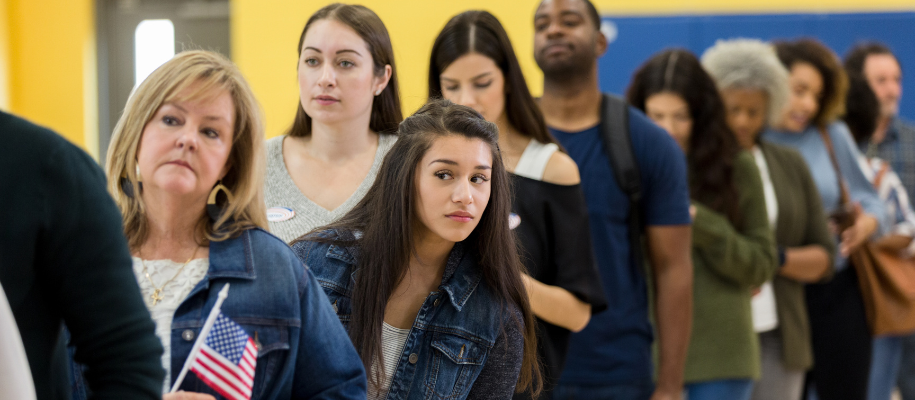Midterm elections are held every four years, during the halfway point of a president’s four-year term. The US Senate will have one-third of its members up for election, while all members of the House of Representatives are up for election. Additionally, there may be state-specific and local issues on your ballot—questions regarding laws and/or regulations that will impact only your city or state—depending on where you live. All elections are important, so if you’re eligible to vote, it’s essential that you do so. Why? And how can you ensure you’re set up to do so? We have the answers for you!
Why you should vote
Why should you vote? Well, the easy answer is because it’s important, but if this simple response isn’t enough for you, here are a few more reasons to do your civic duty.
1. It’s an easy way to get involved in your community
While not all elections are as big as a presidential one, they’re just as important. City and county issues on your ballot could include providing more funding for your school district, renovating your roads, and raising (or lowering) local taxes. Most states have websites where you can enter your address and find a list of candidates and issues that will be on your ballot.
2. It allows you to make a change
Representatives are responsible for creating legislation and voting on issues that affect your future. For example, when you’re looking for a post-grad job, it’s likely you’ll want fair hiring practices and pay equity. Your representatives have a say on these topics and voting can give you the credibility to make your concerns priorities for legislators.
3. You get into the habit of voting
Research shows these habits are formed when you’re young. If you go to the polls once, you’re more likely to return during the next election. And over time you’ll see the impact of that habit. Let your generation be known for outstanding voter turnout!
Related: How to Create Smart, Long–Lasting Habits in High School
4. Your vote can actually impact the election results
In the 2012 presidential election, at least 80 electoral votes depended on the youth vote. As of 2016, it was estimated that 46 million young adults (ages 18–29) were eligible to vote and made up 21% of the eligible voting population. The point is you and your peers make up a large portion of the population so what you think and how you vote matters for your future.
5. You get a pretty cool sticker
None of us are in it just for the sticker, but it feels pretty cool to boast that you’ve done your duty as an American citizen. I mean how many Instagram stories do you see of people with they’re stickers on voting day? Don’t you want to be one of them? Show off that sticker and encourage your friends to register and vote too!
Important voting information for students
As a student, there are some particular privileges you have for voting once you go off to college. Here’s what to know depending on where you are in school right now.
- High school students: If you’re turning 18 prior to college and there’s an election, you should register to vote with your home (often called your permanent) address. You can vote on issues pertaining to your town/city and your county.
- College students: You have the right to choose where you vote, either at home or at school. Many states allow you to update your voting address online for convenience, or your school will have information on how to update your registration or register. If you choose to vote based on your school’s location, be sure to brush up on state policies if you attend a school outside your home state.
Related: Video: CollegeXpress Talks to YelloPain About Voting
As a final piece of advice, don’t miss the registration deadline! Many people miss out on voting because they didn’t realize they weren’t registered and missed the deadline. Make sure to know the deadline of the state you’re voting in and if they offer same-day registration in case you forget or your voting registration expires without you knowing. No what are you waiting for? Get out there and vote!
Are you interested in taking it a step further and being a part of voter education? Check out the Project Vote Smart National Internship Program to get more involved!





